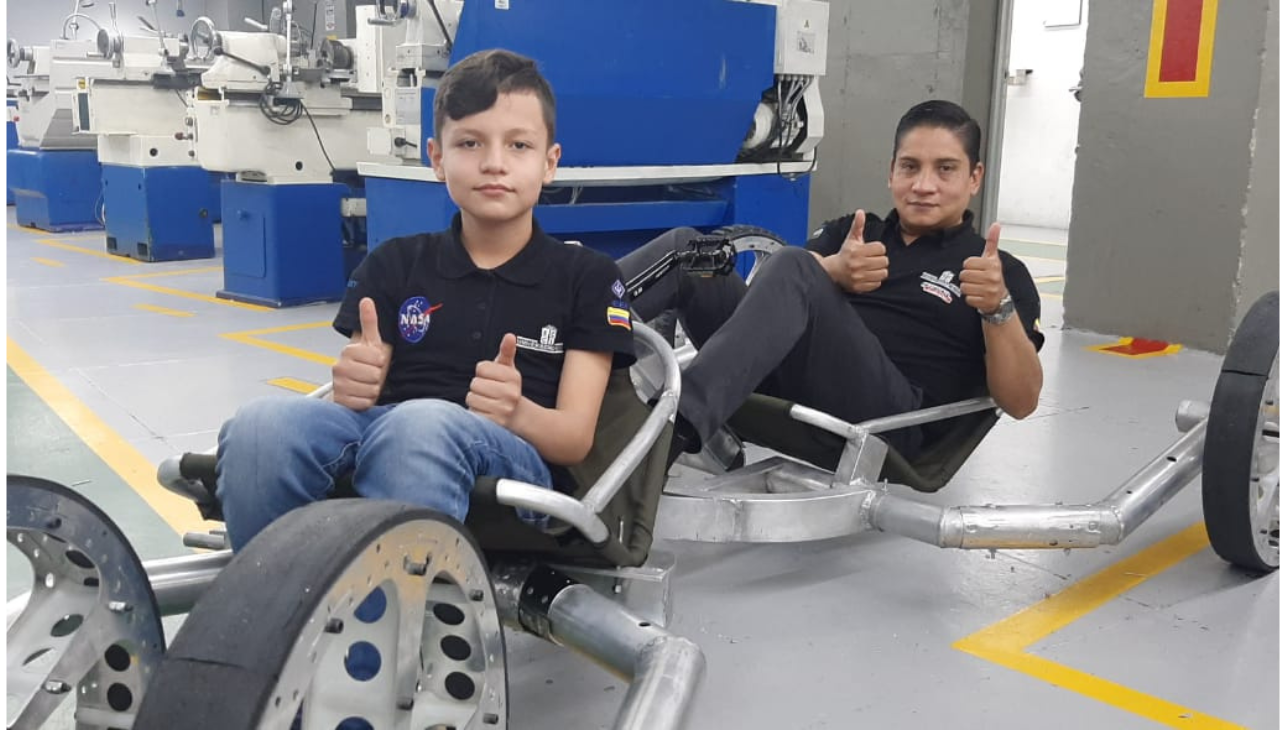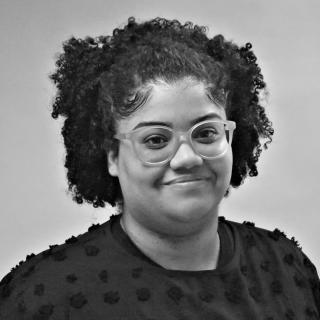
Colombian Engineering Professor provides deaf students the opportunity to thrive in STEAM
Colombian engineering professor provides deaf students the opportunity to thrive in STEAM. Winning NASA's Human Exploration Rover Challenge in STEM in 2020.
Tito Alberto Nuncira Gacharná is a Colombian born and raised, and an Electronic and Telecommunications Engineer, Specialist in Communications Networks from the Cooperative University of Colombia, and holds a Master’s degree in Project Management and Planning from the Ibero-American University of Puerto Rico.
The road to success was challenging but his desire for change and inclusivity propelled Tito to make difficult decisions along the way. He recalls his childhood in Colombia, especially his time in school as rewarding and yet difficult. He attended public school and aspired to study medicine, but the lack of resources did not allow him to pursue a career in this field. At the time, he was interested in engineering as well—resulting in him applying to the engineering program at the Cooperative University of Colombia.
“I feel very happy with my profession, thanks to it, I have received several awards as the Best Teacher in Colombia, awarded by the IEEE institute, Best Social Project in Latin America, Best Graduate of the Year, among others,” states Tito.
Tito is a professor of Electronic Engineering with 16 years of teaching experience and five years of pedagogical experience teaching children and young people at different academic levels in primary or secondary education in the private sector.
He has worked in public and private universities. Among them, the Cooperative University of Colombia, the Francisco José de Caldas District University and the ECCI University, all in Colombia. Tito teaches Research I and II, Entrepreneurship, Organizational Theories, Technological Innovation, Environmental Dimension, Analog and Digital Circuits, Electronics, Telecommunications and Telematics.
Nuncira currently works as a Research Professor at the ECCI University because the “university’s principles and values which trains upright, autonomous, free and entrepreneurial professionals with critical, investigative and innovative thinking—led me to work and be part of it,” Nuncira explained.
Also, a professor at the Gymnasium Modelia Real Institute, an advisory engineer at the Ministry of Technology in Colombia, and a Electronic and Telecommunications Engineer specialist at the International Higher Education Consultant (INTERHEC), an international nonprofit agency located in Philadelphia, PA focused on providing affordable educational through workshops, professional training, conferences, and seminars. His job at this institution is to offer “free and virtual, space robotics and programming workshops to Latino and American children where we inspire them through the study of space sciences and research,” Nuncira stated.
According to INTERHEC site, Tito is a “leader of the Innovation Laboratory of the Central military Hospital and is a Project Manager at the DOMYNET company. Also, director of the IEEE aerospace research hotbed of the ECCI University.”
Those interested in reading more about INTERHEC please click here.
The professor likes to take time creating a teaching proposal, especially focusing on objective 4 of the 2030 Agenda Economic Commission for Latin America and the Caribbean (ECLAC), which is an agenda for sustainable development “that guarantees inclusive, equitable and quality education. Where all students can have access to concepts that go hand in hand with the new realities of globalization,” Nuncira explains. “Among them, [the importance] of the need to get involved in science and mathematics under an integrating approach of subjects such as the STEAM methodology. Therefore, when designing a teaching proposal, I focus on providing updated, innovative, sustainable concepts and solutions. Above all, with the mentality of bringing these teachings to girls, vulnerable students, minorities and especially students with special needs.”
His teaching proposal is no different from his teaching philosophy which is based on the premise that all children are unique and must have a stimulating educational environment where they can grow physically, mentally, emotionally and socially. Where they are encouraged to be managers of their own learning process and in which the teacher is a guide, a facilitator. “It is important that educational centers, schools (primary and secondary) or university instill in students to create critical thinking and stimulate their creativity since critical thinking combined with creativity enables the student to make analysis, synthesis, make informed decisions and apply what you have learned to give real solutions.”
According to a Pew Research Center report from 2021, Hispanic make up 17% of the total workforce, but only 8% are STEM workers. Hispanic women represent 7% of the total workforce but only 2% of STEM workers in 2018.
Tito is passionate about improving these statistics and for Hispanics and Latinx underrepresented in STEM occupations to start seeing themselves occupying these spaces. His love for STEM is possible because “research is the solution of problems through technology which allow us to improve the quality of life of human beings,” assures Tito, who recently led the development of a monitoring bracelet (Smartband) for patients with Covid-19— this allowed doctors to monitor vital signs of patients who were isolated at home. He also built mechanical ventilators, electrostimulation equipment, and used robotics in children as a therapeutic tool during the pandemic.
Students praise his teaching approach because they are able to problem-solve real issues while ‘trying to provide informed and sustainable solutions.’ This success Tito accredits to the use of practical-pedagogical tools such as augmented reality, virtual reality, robotics and the use of homemade materials for the workshops that I develop.
Since 2016, Nuncira has been developing educational material, virtual workshops, and courses in robotics, programming, tailored for children and young people with hearing disabilities in Colombia— training nearly 700 primary and secondary children with hearing disabilities in order to teach them physics and mathematics through robotics and augmented reality. As a result of these training sessions, a group of deaf students from the IEEE hotbed of ECCI University was able to participate in the most important robot fighting tournament, All Japan Robot-Sumo Tournament in Tokyo, Japan. They participated with a 3-kilogram sumo robot built and programmed by deaf students—the best part, this is the first time in 28 years of the tournament that deaf people represented a country and reached the grand finals.
RELATED CONTENT
Nuncira believes his objectives are reflected in their outcome—the result of participating in different International congresses as a speaker where he is able to share knowledge with different universities such as the University of Social Work in Japan, Unitre Milano The Third Age University in Milan, Italy; Paris City University in Paris, France; the Global Humanitarian technology Conference in Silicon Valley (USA) at Santa Clara University, among others.
But Tito's achievements don't stop there. In 2020, his project "The Implementation of the STEAM method", which motivates and inspires primary and secondary school students in Colombia to engage in space science research, won first place in NASA's Human Exploration Rover Challenge in the STEM engagement category. He was motivated by the union and strength in the group of students from ECCI University that he led, after having made an excellent participation in Tokyo, Tito observed on the internet the international challenge posed by NASA for Universities and Colleges, which consisted of creating a human-powered vehicle to transport two astronauts on the moon under the ARTEMIS mission. As Tito explained to AL DIA, during their first participation where 115 Universities from all over the world competed, they obtained two awards from NASA, the first for the best design and construction of the transmission train of this mobile star and the first place as the best STEM project due to the commitment with the improvement of the education for people with hearing disabilities worldwide.
Additionally, he wants the world to see that people with disabilities can also participate in great scientific projects. Another motivating factor is to inspire children and young people to research and study engineering or STEM careers.
“Disability inclusion is an essential condition for the defense of human rights, sustainable development and peace and security,” emphasized Tito. Also, honoring the 2030 agenda for Sustainable Development to leave no one behind. “Engaging students in STEAM, regardless of disability, is about providing them with meaningful experiences to help prepare them to be part of a future society where all kinds of people live and work together seamlessly,” reiterated Nuncira.
However, Tito faced many challenges especially virtual education during the pandemic. He was able to learn to be resilient, resourceful, and utilize ‘this inconvenience [as] a strength.’
Nuncira’s goal is for his students to fight for their dreams. That it is not necessary to have a high IQ to participate and win a project at NASA—discipline, perseverance, collaborative teamwork can lead you to success.
In the future, he hopes to work at a college or university in the United States. His final remarks are “thank you very much for the invitation to this bilingual written press ‘Al Dia’ and I send a very special greeting to all its readers. I want to highlight the work and support of the ‘Al Día’ newspaper, which on August 10 held its inaugural ‘Al Dia Leaders in STEM’ event and its purpose is to be a voice for those communities, including Latinos, underrepresented in the United States. Thank you for exalting the STEM program to the future.”











LEAVE A COMMENT:
Join the discussion! Leave a comment.